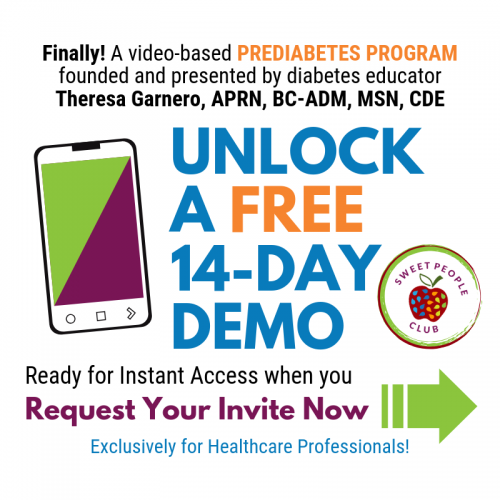Mindful Monday | Can an afternoon nap lower blood pressure?
A study from Greece suggests that a midday nap may help not only increase energy levels but can lower blood pressure as well.
Napping can help boost energy levels during a slump but may have other positive health outcomes. A study conducted at the Asklepieion General Hospital in Voula, Greece, reported that midday naps help lower blood pressure.
“Midday sleep appears to lower blood pressure levels at the same magnitude as other lifestyle changes. For example, salt and alcohol reduction can bring blood pressure levels down by 3 to 5 [millimeters of mercury (mmHg)],” reports Dr. Kallistratos.
The study analyzed data from 212 participants with an average blood pressure 129.9 mm Hg. The group was split into half, one group who took mid-day naps and the other who did not. The researchers measured their blood pressure with monitoring devices.
The researchers also took into account other factors that may affect blood pressure such as stress, alcohol consumption, and other lifestyle choices.
“The researchers found that people who took a daytime nap saw a 5.3 mm Hg drop in systolic blood pressure, which, the researchers explain, is about as much as someone could expect when taking blood pressure medication or making certain lifestyle changes to lower blood pressure.”
This study is particularly important in helping reduce the risk of a cardiovascular event. If those with high blood pressure have the luxury of taking a nap, this can help with maintaining lower blood pressure and has no cost.
This is the first time the benefits of midday napping has been researched. The scientists believe this information can be valuable and worth continued study.
“Even though both groups [of participants] were receiving the same number of medications and blood pressure was well controlled, there was still a significant decrease in blood pressure among those who slept during midday.”
To learn more: Napping may be as good as drugs on lowering blood pressure – Medical News Today
Sign up for Diabetes Blog Bytes – we post one daily Blog Byte from Monday to Friday. And of course, Tuesday is our Question of the Week. It’s Informative and FREE! Sign up below!
[yikes-mailchimp form=”1″]Free Resource Friday! | Preparing for the CDCES Exam 2019 Available Now
FREE On-Demand Webinar | Preparing for CDCES® Exam

Join us to get ready to succeed a the CDCES Exam. This course will transform your test anxiety into calm self-confidence and test-taking readiness.
Topics covered include:
- Changes in requirements for 2019
- Exam eligibility and test format
- Strategies to succeed
- Review of study tips and test-taking tactics.
Coach Beverly reviews sample test questions and the reasoning behind choosing the right answers.
Intended Audience: This FREE webinar is designed for individual or groups of diabetes educators, including RNs, RDs, Pharmacists, Nurse Practitioners, Clinical Nurse Specialists, Physician Assistants and other health care providers interested in achieving excellence in diabetes care and becoming Certified Diabetes Care and Education Specialists®.
Instructor: Beverly Thomassian RN, MPH, CDCES, BC-ADM is a working educator who has passed her CDCES Exam 6 times. She is a nationally recognized diabetes expert for over 25 years.
Sign up for Diabetes Blog Bytes – we post one daily Blog Byte from Monday to Friday. And of course, Tuesday is our Question of the Week. It’s Informative and FREE! Sign up below!
[yikes-mailchimp form=”1″]
Healthier fast food side options hard to find on menu
 In the past decade, healthier “side” options have made their way on to many fast-food children’s menus. Despite their presence, these options are very rarely promoted as the default option. For example, a burger is often automatically paired with fries while other healthier options, like salad or fruit, are difficult to locate on the menu.
In the past decade, healthier “side” options have made their way on to many fast-food children’s menus. Despite their presence, these options are very rarely promoted as the default option. For example, a burger is often automatically paired with fries while other healthier options, like salad or fruit, are difficult to locate on the menu.
Eating out at fast-food restaurants is part of a typical week for many families. Most restaurants focus on pleasing the consumer’s palate, not nutritional value, which generally means meals higher in fat and calories than a home-cooked meal.
Children consume 150 more calories when they eat fast-food over a home-cooked meal. Simple steps, like replacing a sugary beverage with water or opting for a salad instead of fries, can help to counteract the excess calorie intake.
 A study led by author Megan Mueller, a researcher at the UCLA Fielding School of Public Health in Los Angeles, analyzed 20 difference fast-food menus over an 11-year period. The study was conducted to help understand the introduction of healthier options over time and if they were “featured” on the menu.
A study led by author Megan Mueller, a researcher at the UCLA Fielding School of Public Health in Los Angeles, analyzed 20 difference fast-food menus over an 11-year period. The study was conducted to help understand the introduction of healthier options over time and if they were “featured” on the menu.
Of the 20 fast-food chains that were studied, 30% offered a healthier side as their default option by 2015. “It was surprising to see how much progress these restaurants made in offering healthier sides and beverages as options in children’s meals, but how much more progress still needs to be made in offering these healthier items by default,” Mueller said.
Offering a healthier choice as the default is crucial because it helps us instinctively choose something, but also takes the title of “normal” away from an unhealthy option, like french fries or soda. By labeling calories and steering away from advertising the unhealthier options, we can help steer kids and adults in the right direction.
To learn more: “U.S. fast food chains offering more healthy options for kids” by Reuters
Our Diabetes Detective Team scans the diabetes news to discover the most relevant info that Diabetes Educators need in their daily practice. We post one daily Blog Byte from Monday to Friday. And of course, Tuesday is our Question of the Week. It’s Informative and FREE! Sign up below!
[yikes-mailchimp form=”1″]
Check out our latest Blog Bytes >>
Question of the Week | June 4th 2019
Our Diabetes Detective Team scans the diabetes news to discover the most relevant info that Diabetes Educators need in their daily practice. We post one daily Blog Byte from Monday to Friday. And of course, Tuesday is our Question of the Week. It’s Informative and FREE! Sign up below!
The Question of the Week – June 4th 2019
Join us for the new Boot Camp Series, beginning July 1st, 2019 to include changes to CDCES content outline.
The Diabetes Educator Online Boot Camp offers eight courses, plus a bonus course, “The Big Finish” Test Taking Boot Camp, for a total of 12.75 CEs.
You can also download our free CDCES Coach App!
Free Resource Friday | Preparing for the CDCES Exam Webinar!

Join us for free on June 5th @ 11:30 a.m. PST
Join us to get ready to succeed a the CDCES Exam. This course will transform your test anxiety into calm self-confidence and test-taking readiness.
Topics covered include:
- Changes in requirements for 2019
- Exam eligibility and test format
- Strategies to succeed
- Review of study tips and test taking tactics.
We will review sample test questions and the reasoning behind choosing the right answers.
After registering, you will receive a confirmation email containing information about joining the webinar.
Intended Audience: This FREE webinar is designed for individual or groups of diabetes educators, including RNs, RDs, Pharmacists, Nurse Practitioners, Clinical Nurse Specialists, Physician Assistants and other health care providers interested in achieving excellence in diabetes care and becoming Certified Diabetes Care and Education Specialists®.
Instructor: Beverly Thomassian RN, MPH, CDCES, BC-ADM is a working educator who has passed her CDCES Exam 6 times. She is a nationally recognized diabetes expert for over 25 years.
See our Preparing for CDCES Resource Page >>
Sign up for Diabetes Blog Bytes – we post one daily Blog Byte from Monday to Friday. And of course, Tuesday is our Question of the Week. It’s Informative and FREE! Sign up below!
[yikes-mailchimp form=”1″]Sunlight exposure decreases risk of type 2 diabetes?

According to research conducted by the The Journal of Clinical Endocrinology & Metabolism, exposure to sunlight may play a role in decreasing insulin resistance and dyslipidemia.
In previous Diabetes Blog Bytes, we have highlighted the health benefits of spending time in the sun. Now, more data to support sun therapy. “Increased bright sunlight exposure may be associated with a reduced risk for type 2 diabetes and heart disease by lowering blood insulin and lipid levels,” stated Constantinos Christodoulides, MD, PhD, a university research lecturer and honorary consultant in diabetes and endocrinology at the Oxford Centre for Diabetes, Endocrinology and Metabolism at the University of Oxford, United Kingdom.
This study analyzed over 8,000 healthy participants. The scientist gathered data from body measurements and fasting blood sugar levels. They then juxtaposed this data next to weather measurements in the areas where participants lived.
“Researchers found that each additional 1-hour increase in bright sunlight during the 7 days before blood sampling was associated with a –1.05% decrease in insulin resistance and a –0.54% improvement in beta-cell function .”
Longer exposure to sunlight days prior to blood sampling was also associated with lower LDL cholesterol.
The researchers believe that additional studies should be conducted in order to better understand the correlation.
To learn more: Bright sunlight exposure may decrease risk for type 2 diabetes, CVD – Healio
Sign up for Diabetes Blog Bytes – we post one daily Blog Byte from Monday to Friday. And of course, Tuesday is our Question of the Week. It’s Informative and FREE! Sign up below!
[yikes-mailchimp form=”1″]Women Leaders in Diabetes Conference – Using Creativity to Combat the Diabetes Pandemic | Keynote Presentation

If you couldn’t make the Women Leaders in Diabetes Conference (which was completely magical), we have great news. Each Wednesday, we will highlight our keynote speakers and their message. First up, is the amazing Theresa Garnero and Conference Co-Chair.
How many more people could you reach by tapping into your creativity? Theresa Garnero, APRN, BC-ADM, MSN, CDCES, founder of theSweet People Club, kicked off our Women Leaders Conference with a TED-style presentation and this question. She inspired the audience to incorporate more creativity into their diabetes education approaches. To get the creativity ball rolling, she shared strategies that she uses to provide interactive and fun approaches to diabetes education.

Theresa is a creativity expert. In addition to her numerous degrees and certifications, she is a talented artist, humorist, and cartoonist. She reaches people with prediabetes and diabetes by using creativity as a bridge to build rapport and trust.
Theresa also promotes imaginative expression through movement. As the founder of “Dance Out Diabetes,” Theresa made a lasting impression on the hundreds of community members who walked through her door. Dance Out Diabetes was a fun dance community made up of all ages, abilities, people with and without diabetes, friends, families, volunteers, and certified diabetes educators. Regular dance programs included ongoing health screenings, a 45-minute dance lesson, and different genres of music. Participants had an opportunity to socialize with peers facing similar challenges in a relaxed and informal setting. Plus, they had improved outcomes.

In 2019 Theresa once again leveraged creativity, combined it with technology and founded theSweet People Club. This easy-to-navigate and upbeat website invites people with prediabetes to meet weekly and enjoy a modernized CDC curriculum that includes fun, brief informational videos.
The Sweet People Club is perfect for people on the go or who can’t afford the time to come in for multiple appointments. The Sweet People Club houses over eighty videos by Theresa and a team of experts, so people with prediabetes can design an individualized program that best matches their needs and interests.
From cartoons to dancing and technology, there are so many ways to build creativity into our diabetes education programs. Given the diabetes pandemic, incorporating creativity to keep participants engaged is more important now than ever.
Question of the Week | May 28th, 2019
Our Diabetes Detective Team scans the diabetes news to discover the most relevant info that Diabetes Educators need in their daily practice. We post one daily Blog Byte from Monday to Friday. And of course, Tuesday is our Question of the Week. It’s Informative and FREE! Sign up below!
The Question of the Week – May 28th, 2019
Sign Up for Diabetes Blog Bytes Today
Do you know the best way to prepare for the CDCES exam? Want more questions like this? Really test your knowledge and prepare with our 1-Year Subscription, with over 36 online courses and 50+ CEs.
You can also download our free CDCES Coach App!
Sign up for Diabetes Blog Bytes – we post one daily Blog Byte from Monday to Friday. And of course, Tuesday is our Question of the Week. It’s Informative and FREE! Sign up below!
[yikes-mailchimp form=”1″]







